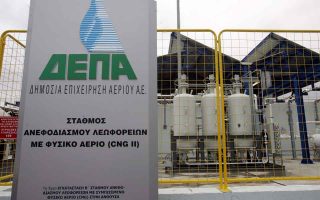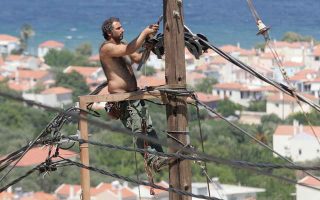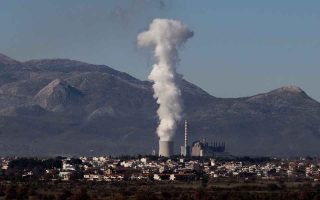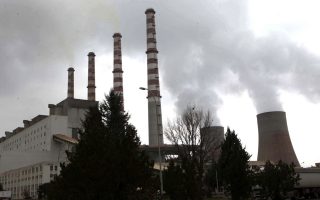Richard Morningstar: Energy security means greater political security
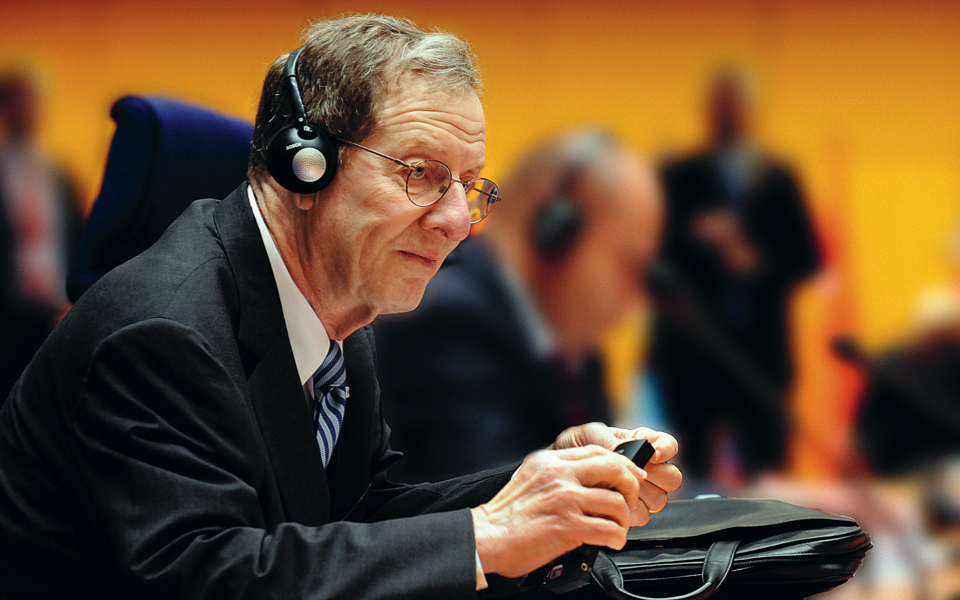
Ambassador Richard Morningstar, the founding director and chairman of the Global Energy Center at the Atlantic Council, notes that Greece can play a role in promoting as well as benefit from a transparent and competitive energy market in Europe. In an interview with Kathimerini after delivering the annual Prometheus Energy Lecture, titled “21st Century Energy Security: The United States, Europe, and Greece,” in Piraeus earlier this month, the former special envoy of the US secretary of state for Eurasian energy explained why energy security is the foundation for economic and political security.
Having just been bestowed with the Prometheus Award by the Department of International and European Studies at the University of Piraeus, Ambassador Morningstar told Kathimerini that US liquefied natural gas as an alternative source can promote energy security in Europe, and that including Greece in the Three Seas Initiative would be very helpful for Greece in its transformation into an energy hub for the region. As for ExxonMobil’s recent gas discovery in Cyprus’s exclusive economic zone, he notes the political and security challenges but adds that the US may – and should – get more involved to help resolve those issues in the Eastern Mediterranean.
Why does the US care about energy security in Europe? In your lecture, you made the point that energy security is also economic and political security; does this imply that Russia is a malign actor in the region?
Yes, I think it does relate to economic security. On the political side, if you go back to the 1980s, we raised serious concerns with Europe on gas from Russia during the Cold War, and I think that the disruptions in Ukraine in 2006-09 emphasized that Europe should have alternative sources and should be as independent as possible. I would never say that Russia should not be selling gas to Europe, but they should be selling it in a competitive and transparent market. I hope that the steps that are being taken both in Brussels and to improve the infrastructure in this part of Europe will help create that competitiveness and transparency. My argument is that Gazprom has every right to compete with anybody else in Europe, as long as they can’t use it as a weapon.
Ukraine has obviously fallen victim to Russian influence, yet larger countries like Germany don’t necessary feel threatened, and even countries like Greece that are historically linked to Russia feel they don’t have anything to worry about as far as Russia is concerned.
Yes, I think that’s probably right, but Greece is still going to be better off if there is a transparent and competitive market. Greece and Germany are part of the European Union, and they are affected by Russia’s influence. So, it seems to me that the key is to have a market that’s competitive. Let Russia follow the rules and compete. Who can argue against that?
You mentioned the prospects of Greece becoming an energy hub for the transit of gas from the Eastern Mediterranean, and even US gas, to Europe. What are the economic prospects? For instance, does it make economic sense for US gas – coming from so far away – to be imported to Europe?
Well, we’ll see. There have been several shipments to Europe already and the costs are coming down. I agree that it’s tough, but the companies feel that they can be competitive. We’ll see if they can be. But there are two other strong points: one, just that LNG will be available as an alternative; and two, who knows what will happen to the market? Prices may start going up and companies will be better able to compete. US companies are selling a lot of LNG and, it’s true, much more to Asia than Europe. At the same time, LNG could be competitive in Europe. There are countries that are going to want to have more than one source. Russia will not be able to arbitrarily raise its prices if there are alternatives.
Would including Greece in the Three Seas Initiative help make it an energy hub?
It would be really helpful to include Greece in the Three Seas Initiative, because it would allow projects that would bring gas through Greece into the Balkans, such as the Gas Interconnector Greece-Bulgaria (IGB Pipeline). Other examples include the proposed Alexandroupoli terminal and the potential expansion of the Trans Adriatic Pipeline (TAP) with offshoots into the Western Balkans. All of these can then become priority projects. So, I think it could be very helpful from Greece’s standpoint to be part of the Three Seas Initiative.
How do you assess the recent energy finds in the Eastern Mediterranean, especially in Cyprus, and are you concerned that they may raise the stakes for security in the region?
I think security is a potential issue. I am not qualified to determine the likelihood of success of the Exxon project, and how hard or easy it will be to implement the project. It is important that it is Exxon that has made these findings. Because of that, it may result in the US getting more involved to help resolve issues in the Eastern Mediterranean. These are difficult political and security issues. It is important that the US help to resolve the Cyprus issue and other issues in the Eastern Mediterranean. I’ve always argued, let’s settle the resource issue and that should be a confidence-building measure to achieve ultimate reunification. If we wait on reunification to deal with the resources – and both will take a long time, the project and the politics – I think it might make it more difficult to resolve.
The EastMed project is a commercially challenging one, but there is also a geopolitical argument there. Do you see grounds for the US to help bring it to fruition, and what kind of help could that be?
There must be a concrete strategy on how to go about resolving these issues. We have to look at what leverage we can use to bring all parties to the table and make sure all parties benefit, including Greece, Turkey and all of Cyprus. These issues need to become higher on the radar screen of the US. Invariably, there have been so many other issues in the world that not enough attention has been paid to these issues.
How does energy independence affect US policy in the Eastern Mediterranean?
The US, although certainly moving towards energy independence, is not totally independent. We still buy oil from the Middle East. We don’t buy much gas. We still have an interest in energy issues because it relates so clearly to economic and political security. We may be able to survive if the Strait of Hormuz is shut off, but what wars might we end up in? We have an interest in stability across the world, working with friends and partners to help ensure that stability. So, we can’t just get in a cocoon and think that the rest of the world doesn’t matter, because if there are real problems economically and politically in the rest of the world, we will be affected, no matter what.

